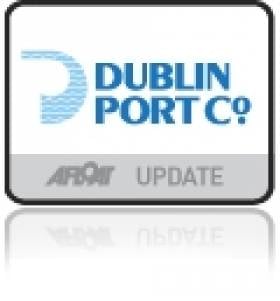Displaying items by tag: Marine Jobs
Vacancy for a Navigation Support Officer
Irish Lights is recruiting a Navigation Support Officer to join the E-Navigation and Maritime Services (EMS) department. This position is based in our Head Office in Dun Laoghaire.
The role involves providing support on the navigation to the department, including:
- The preparation of Board and departmental reports,
- Navigation assessments for Foreshore Licence, Aquaculture applications, Maritime Area Consent Applications and statutory sanctions
- Supporting ship superintendence and survey requirements.
Applicants must hold a Level 8 Degree qualification, or equivalent maritime qualification and experience, STCW certification (Deck) and have a background in maritime and /or navigation.
The role will suit someone with maritime operations and project management experience who has a passion for our core mission of ensuring safety for all at sea. The role is rewarding and challenging, requiring a flexible approach to work, including limited travel.
The starting point of the salary scale is €53,846, rising to €64,272.
Please view the Candidate Briefing Pack on Irish Lights website for full details of the position, the requirements and how to apply by 12 February 2024.
The Commissioners of Irish Lights is an equal opportunities employer and promotes diversity in the workplace.
Irish Lights Vacancy for a Systems Performance Lead in Coastal Operations Department
Irish Lights is recruiting a skilled systems/electronic technician to join our Coastal Operations Team as a Systems Performance Lead. The successful candidate will work closely with the team in the management of our software systems to improve workflow, monitoring, reporting, fault analysis and rectification of critical defects and outages in the Aids to Navigation (AtoN) Systems.
If you are interested in a secure role within an innovative and unique organisation, then this role is for you.
Duties of the role will include:
- Being the Systems “Super User” for Coastal Operations
- Managing the Monitoring System
- Acting as the first point of contact in undertaking fault analysis of critical defects and outages
- Triaging responses to outages on all AtoN Systems
- Liaising with other team members to ensure the management of critical spare parts stock
- Tracking and scheduling planned replacement of equipment
- Supporting the development of Systems documentation and specifications
The candidate must be an experienced systems, radio radar or electronic technician with a relevant professional qualification. Experience in Automatic Identification Systems (AIS) would be an advantage.
The starting point of the salary scale is €44,235 rising to €52,215. The point you will be placed on is commensurate to experience. Benefits that make up the attractive reward package include; a very generous defined benefit pension scheme, paid sick leave scheme, an Employee Assistance Programme, generous family friendly policies, an Occupational Health Service, Bike for Work, Taxsaver commuter schemes, onsite parking and an onsite canteen. Irish Lights also provides significant training and career development opportunities.
Please view the Candidate Briefing Pack for full details of this position, the requirements and how to apply by 7 January 2024.
The Commissioners of Irish Lights is an equal opportunities employer and promotes diversity in the workplace.
Dublin Port Seeks Position of Chief Engineer
#DUBLIN PORT POSITION – Ireland's busiest port operated by the Dublin Port Company, which last year handled over 28m tonnes in goods, is currently seeking applications for the position of a Chief Engineer.
To apply, send full personal, career and current remuneration details to the following contact information provided HERE. Noting further background details of the position can also be found through this link.





























































